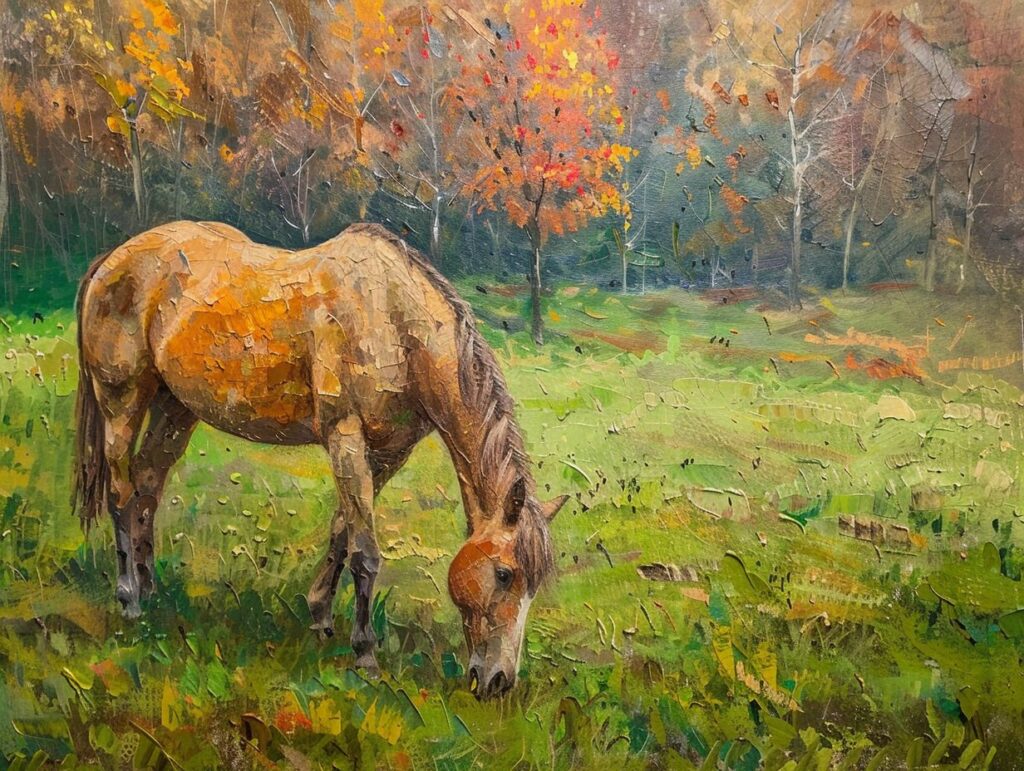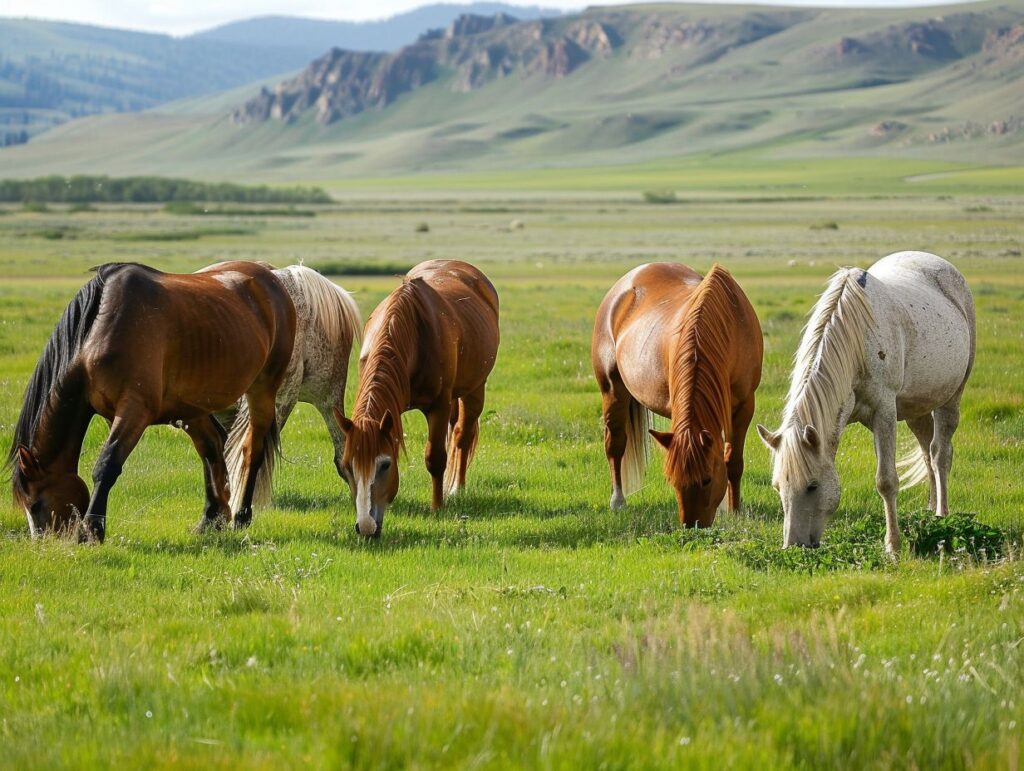Have you ever wondered about the role of niacin in your horse’s nutrition? Niacin, also known as vitamin B3, plays a crucial role in maintaining the health and well-being of horses.
In this article, you will explore the importance of niacin for horses, the signs of niacin deficiency to watch out for, the various sources of niacin in their diet, the recommended dosage for optimal health, and the potential side effects of niacin supplementation.
Learn everything you need to know about niacin and how it can benefit your horse’s overall health.
Understanding Niacin and its Role in Horse Nutrition
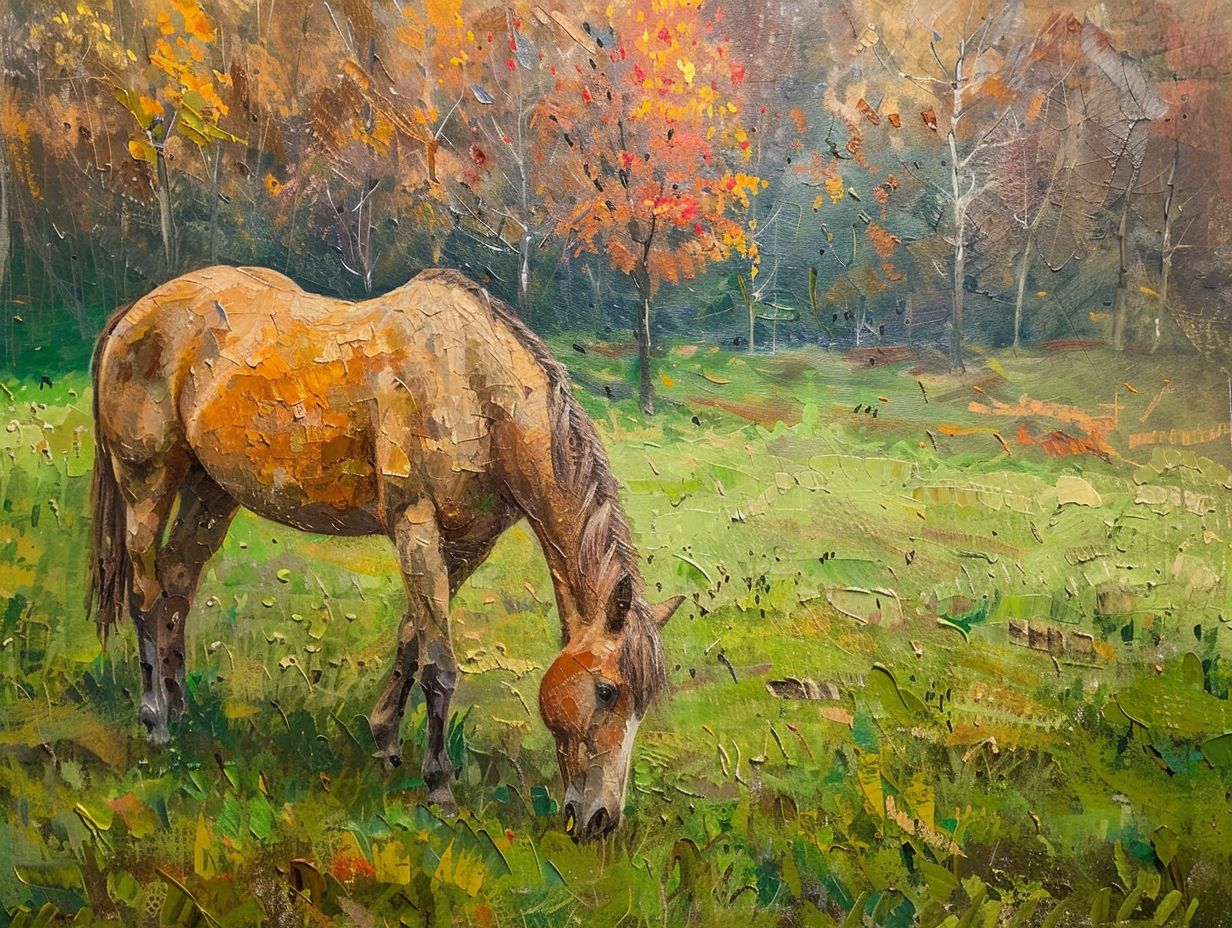
Understanding Niacin and its role in horse nutrition is crucial for maintaining equine health and performance. You must recognize that Niacin, also known as Vitamin B3, plays a vital role in various metabolic functions within horses, impacting their overall well-being.
It is essential for the conversion of carbohydrates, fats, and proteins into energy, making it a key nutrient for horses that are often subjected to rigorous physical activity. Niacin also supports a healthy digestive system by promoting efficient nutrient absorption and aiding in the maintenance of a balanced gut flora.
Ensuring adequate levels of Niacin in their diet can prevent health issues such as poor coat condition, loss of appetite, and metabolic imbalances that can compromise the horse’s performance and quality of life.
What is Niacin and Why is it Important for Horses?
You need to recognize the importance of niacin, also known as Vitamin B3, as a critical nutrient for horses. This vitamin plays an essential role in supporting various metabolic functions crucial for maintaining the overall health and well-being of your horses. Niacin impacts their energy metabolism, enzyme reactions, and nervous system functions.
Niacin is particularly beneficial for the equine digestive system, as it facilitates the breakdown and utilization of proteins, fats, and carbohydrates. This essential vitamin is also significant in maintaining healthy skin and coat in horses, which contributes to their overall appearance and well-being. By supporting enzyme reactions, niacin allows horses to efficiently convert food into energy, ultimately promoting endurance and performance. Ensuring that your equines receive a sufficient intake of niacin through a well-balanced diet is crucial for promoting optimal health and vitality in your horses.
Signs of Niacin Deficiency in Horses
Recognizing the signs of Niacin deficiency in horses is crucial for preventing potential health issues. A deficiency in Niacin can result in various problems, such as hoof issues, skin conditions, and other health complications in equines.
Hoof issues stemming from Niacin deficiency may present as weak or brittle hooves, which can lead to lameness and difficulties in movement. Skin conditions like dermatitis, dryness, or a lackluster coat can also serve as indicators of insufficient Niacin in the horse’s diet. Additionally, the horse’s immune system may weaken, making them more vulnerable to infections and illnesses.
Horse owners and caregivers must ensure that their animals receive adequate levels of Niacin to uphold optimal health and well-being.
Identifying Symptoms and Potential Risks
Identifying the symptoms and potential risks of Niacin deficiency in horses is crucial for timely intervention and treatment. Common signs of deficiency include hoof problems, skin conditions, and overall deterioration in equine health.
In terms of hoof problems associated with Niacin deficiency, horses may experience issues such as cracked hooves, tender soles, or laminitis. These conditions can have a significant impact on a horse’s mobility and result in chronic pain. Skin conditions like dry, flaky skin, dermatitis, or a dull coat are also commonly observed in horses with insufficient Niacin levels. These symptoms can have a profound effect on the overall well-being and performance of the animal, underscoring the importance of ensuring proper nutrition and health maintenance practices in equine care.
Sources of Niacin for Horses
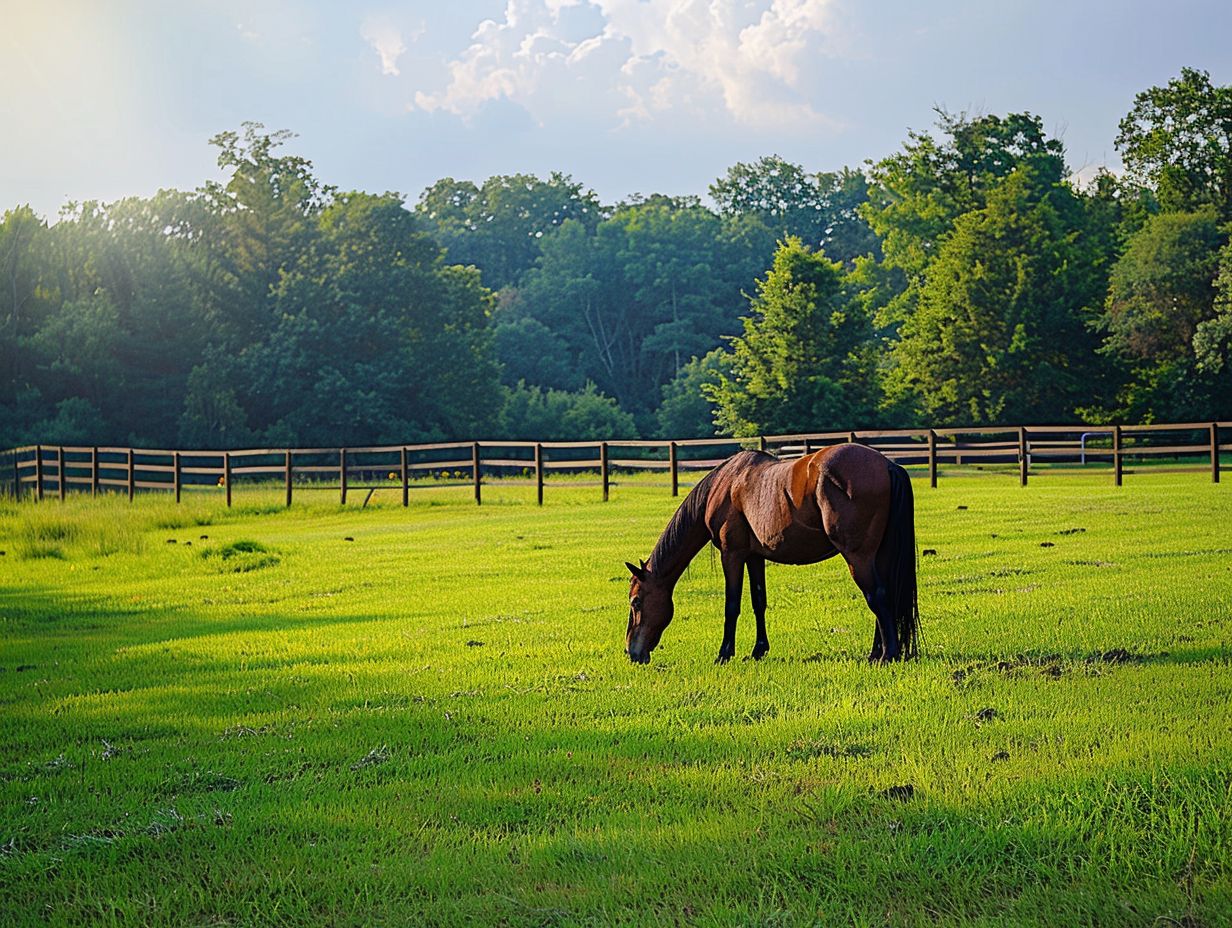
Understanding the sources of Niacin for horses is essential for designing a balanced equine diet. Common sources of Niacin include corn, soybean, alfalfa, and hay, which provide the necessary nutrients to meet the dietary requirements of horses.
These nutrient-rich options play a crucial role in sustaining equine metabolism and overall well-being. Corn, for instance, contains ample amounts of Niacin that support the horse’s energy production and digestive health. Soybeans are another valuable source, offering proteins and essential amino acids vital for muscle development. Alfalfa, with its high-quality protein content, aids in maintaining proper muscle function and growth. Hay provides roughage and fiber that support digestive processes, ensuring efficient nutrient absorption in horses.
Natural and Supplemental Sources
You can naturally obtain Niacin for horses from sources such as corn, soybean, alfalfa, and hay, which are vital components of a well-rounded equine diet. In cases where horses have specific dietary needs, supplements can offer concentrated Niacin.
These natural Niacin sources are pivotal in promoting the overall health and performance of horses. Corn and soybean are particularly abundant in Niacin, while alfalfa and hay provide additional nutrients to enhance the equine diet.
It is crucial for horse owners and caretakers to ensure that their animals receive sufficient Niacin from a range of feed sources. While supplements can help fulfill Niacin requirements, they should always complement a balanced diet rather than being the sole provider of this essential vitamin.
How Much Niacin Do Horses Need?
Determining the proper dosage of Niacin for horses is crucial for maintaining their optimal health and well-being. When determining the recommended intake of Niacin, factors such as equine health, digestibility, and absorption rate should be taken into consideration to ensure the effectiveness of supplementation.
Equine health plays a vital role in establishing the appropriate Niacin dosage, as different health conditions can affect the absorption and utilization of this essential nutrient. The digestibility of Niacin sources in horse feed is also a key factor to consider, as the absorption rates can vary among different forms of Niacin. Understanding the individual needs of each horse based on its health status and dietary requirements is essential for tailoring the Niacin dosage to maintain optimal health in equines.
Determining Proper Dosage for Optimal Health
Determining the proper Niacin dosage for horses is crucial for their overall health maintenance. Understanding the recommended intake based on equine physiology is essential to ensure optimal health and performance.
Niacin, also known as Vitamin B3, plays a vital role in supporting various metabolic processes in horses. Factors such as age, weight, activity level, and any underlying health conditions must be considered when determining the appropriate dosage.
A deficiency in Niacin can lead to issues such as poor coat quality, decreased energy levels, and impaired immune function. Therefore, it is imperative for horse owners to consult a veterinarian or equine nutritionist to tailor the Niacin dosage to meet the specific needs of each horse.
By incorporating the right amount of Niacin into their diet, horse owners can promote overall well-being and longevity in their beloved animals.
Potential Side Effects of Niacin Supplementation
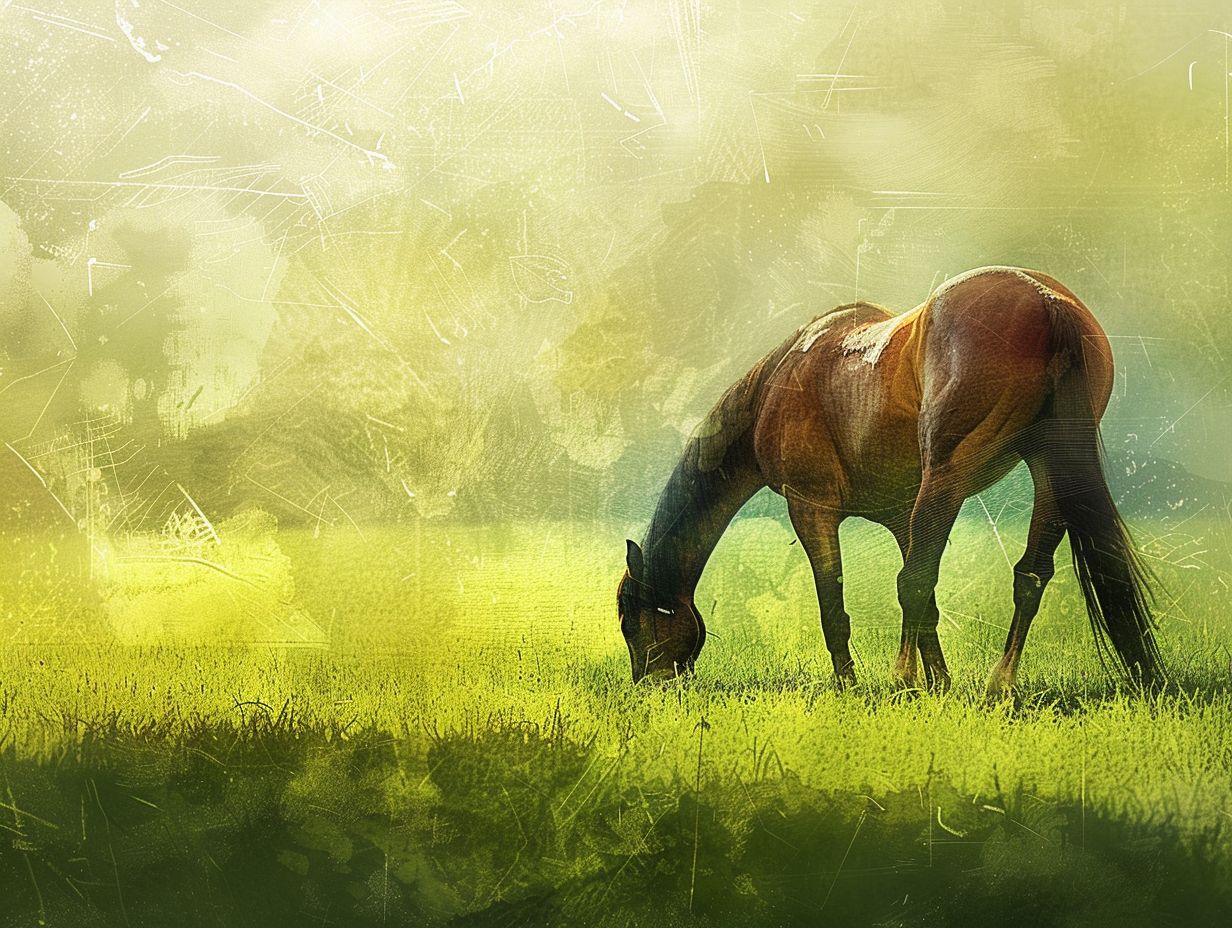
Understanding the potential side effects of Niacin supplementation in horses is crucial for ensuring their well-being. While Niacin offers numerous health benefits, improper supplementation can lead to adverse effects that may require veterinary advice.
Niacin, also known as Vitamin B3, plays a vital role in various metabolic processes in horses. Excessive intake of Niacin can result in side effects such as liver damage, gastrointestinal issues, and insulin resistance. These health implications highlight the importance of maintaining the proper balance when supplementing Niacin.
Scientific research has shown that moderate doses of Niacin can positively impact cholesterol levels and overall cardiovascular health in horses. It is essential for horse owners to consult veterinarians before implementing any Niacin supplementation regimen to mitigate risks and ensure optimal health outcomes.
Understanding Risks and How to Minimize Them
Understanding the risks associated with Niacin supplementation in horses and how to minimize them is essential for responsible equine care. While Niacin offers significant health benefits, proper management and veterinary advice are crucial to mitigate potential risks, such as skin conditions.
It is important for horse owners to be aware that excessive Niacin supplementation can lead to adverse effects, including liver problems and gastrointestinal disturbances. To reduce these risks, it is advisable to consult with a veterinarian before introducing Niacin into the horse’s diet. Veterinary guidance can help in determining the appropriate dosage and duration of Niacin supplementation tailored to the specific needs of each horse. Monitoring the horse closely for any signs of skin conditions or other health issues can aid in early detection and timely intervention.
Frequently Asked Questions
Do Horses Need Niacin?
Yes, horses do need niacin as it is an essential vitamin for their overall health and well-being.
What is the role of niacin in a horse’s diet?
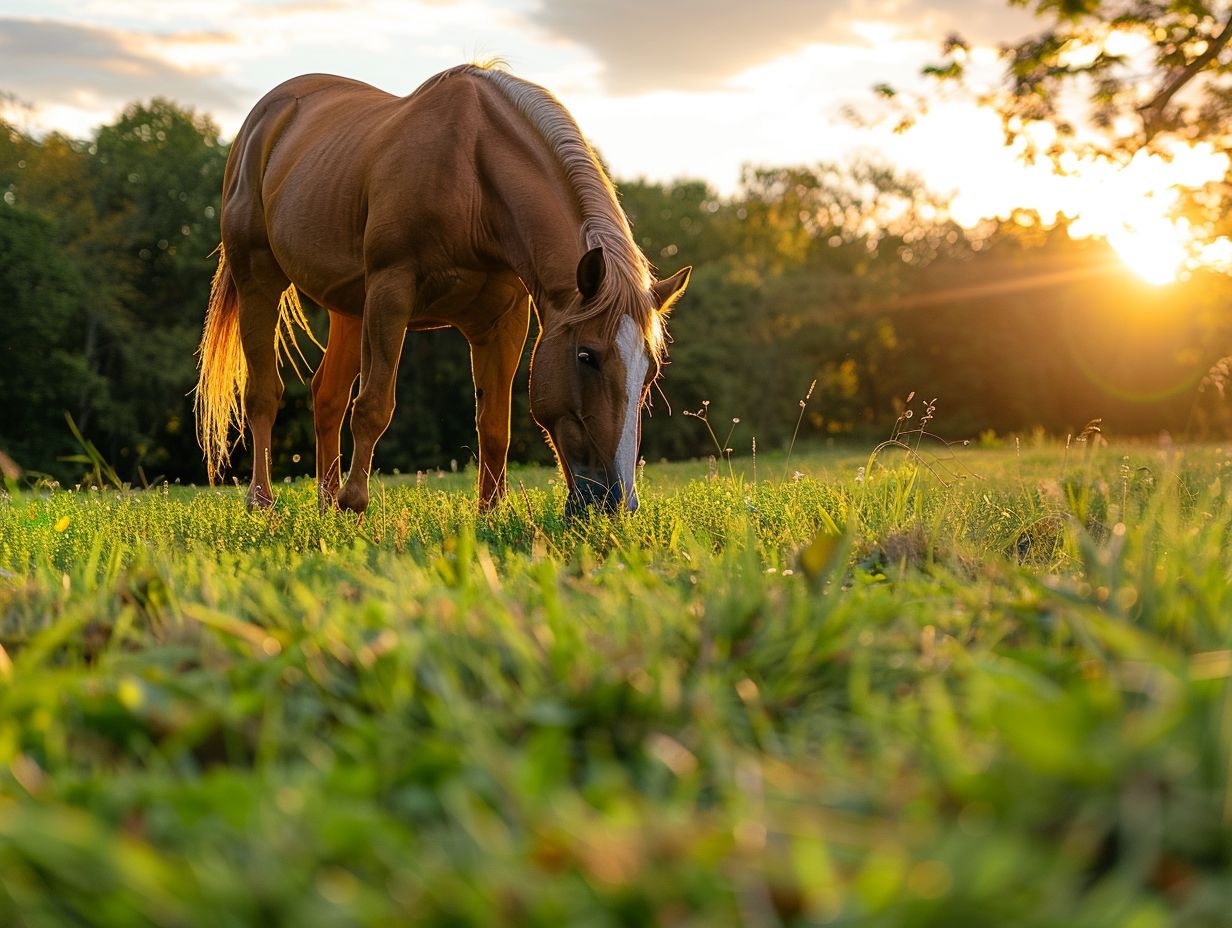
Niacin, also known as vitamin B3, plays a crucial role in energy production, digestion, and the maintenance of a healthy nervous system in horses.
What are the signs of niacin deficiency in horses?
Some common signs of niacin deficiency in horses include poor appetite, weight loss, rough coat, digestive issues, and neurological problems.
Can horses get enough niacin from their diet alone?
In most cases, horses can get enough niacin from their diet if they are fed a well-balanced diet with adequate amounts of green forage. However, some horses may require additional supplementation.
What are some good sources of niacin for horses?
Some good sources of niacin for horses include alfalfa, beet pulp, grains such as wheat and corn, and some legumes like peas and beans.
Is it possible for horses to consume too much niacin?
Yes, it is possible for horses to consume too much niacin, which can lead to adverse effects such as liver damage and skin reactions. It is important to consult with a veterinarian before supplementing with niacin to ensure proper dosage.
